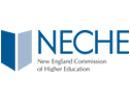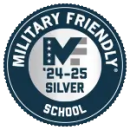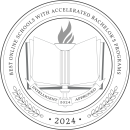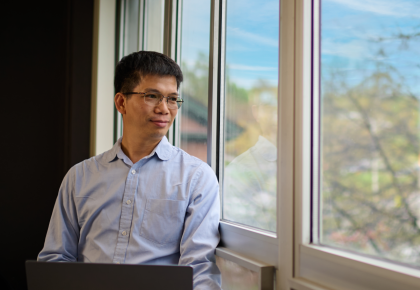ENGL-110
Understand Human Behavior and Society's Complexities
Begin your journey in the social sciences with Champlain College Online's (CCO) Associate of Arts in Social Sciences. This 60-credit program provides an introduction to psychology, sociology, and criminal justice while developing essential analytical skills that employers value across industries. Through focused coursework examining individual behaviors, group dynamics, and social institutions, you'll gain insights into the factors that shape communities and prepare for meaningful work addressing real human challenges.
Finish your program faster with credit for prior learning and experience.
Differentiate your degree and get your resume noticed with a certificate. Speak with your advisor for information.
Develop Essential Skills for Understanding Social Systems
- Foundational Discipline Knowledge: Explore key theories and concepts in psychology, sociology, and criminal justice that explain human behavior and social interactions.
- Research Methodology Fundamentals: Learn how social scientists collect and analyze data to address real-world questions, enabling you to make evidence-based decisions.
- Ethical Reasoning Framework: Examine the importance of integrity, fairness, and respect for diversity when conducting research and applying social science principles.
- Critical Thinking Applications: Analyze contemporary issues affecting individuals and communities using social science perspectives and problem-solving approaches.
- Effective Communication Skills: Develop the ability to clearly explain complex social science concepts to different audiences—an essential skill for any career working with people.
- Interdisciplinary Perspectives: Gain insights from multiple social science disciplines, creating a well-rounded understanding of human behavior and social systems.
Program Curriculum for the AA in Social Sciences
Champlain's online courses encompass the top skills needed by today's professionals. Graduates of the program are required to complete the following courses.
Professional Courses (27 credits)
General Education Courses (21 credits)
General Electives (12 Credits)
This course empowers students with essential habits of mind for success in higher education and beyond. From a questioning mindset, students will explore informed decision-making and creative problem-solving; connecting personal values and discipline-specific ethical frameworks to various contexts. Students will learn the importance of communication to enhance collaboration to support integrated decision-making processes in diverse settings. This course provides a strong foundation for academic achievement and personal growth, valuable for all students regardless of their background or future aspirations.
This course provides students with a comprehensive overview of the American criminal justice system as comprising three essential components: law enforcement, the court system and corrections. Students will recognize that the field of criminal justice is interdisciplinary and they will outline and discuss the historical foundation of the criminal justice system. They will also explore social and ethical dimensions as they review real-world case studies.
In this class, students will explore how social relationships, groups, societies and culture develop and change over time. From a sociological theory foundation and employing the sociological imagination, students will examine the impact of social structures, institutions, and systems on individual lives. Students will apply sociological research methods to investigate sociological phenomena in their own lives.
In this course, students will explore broad, foundational knowledge in psychology, including its history, major theorists and a survey of psychology subfields such as developmental, cognitive and social psychology. Students will also describe and assess the role of ethics and social responsibility in the study and application of psychological theory and practices.
Students will learn about how social science research is conducted, including the research methods (quantitative and qualitative) typically used in the social sciences. Students will assess the alignment of various research methods and the research goal and ultimately practice planning, conducting, analyzing and interpreting research. Additionally, students will critically analyze existing research through the lens of ethics and social justice.
Ethics refers to accepted standards of right and wrong that prescribe what humans ought to do in various contexts, typically in relation to rights, obligations/duties, benefits to society, fairness, consequences, and virtues. In this course, students will explore both theoretical and practical dimensions of ethics in order to 1) define ethics and identify ethical positions and principles, 2) critically reflect on how ethics impacts individual and collective responsibility, decision-making, and action, and 3) apply ethics to the personal, civic, and professional contexts.
Prerequisites
In this course students will discuss theoretical explanations for contemporary social problems in the U.S. and other societies. From a sociological orientation, students will analyze root causes and consequences of those problems and debate potential solutions. Topics may include addiction, crime, poverty, mass media, family, war and terrorism, aging, and science and technology. Employing social science research approaches, students will strategize potential responses or solutions to those problems.
Prerequisites
Take SOCI-110
What, who and where is community and how does it form and change over time? Students will question how communities develop and can shift (e.g. urban sprawl). What is the impact of such shifts on the people who live in those communities? Students also explore how communities develop, how people organize to create or respond to change, and how communities build resilience in response to challenges.
Prerequisites
Take SOCI-110
This course explores the complex and evolving relationship between human beings and technology. Through a multi-disciplinary approach that draws on fields such as sociology, psychology, philosophy, and history, students will examine the ways in which technology has shaped human culture, identity, and values, as well as how humans have influenced and continue to influence the development, adoption and use of technology.
Human beings are social creatures, and social psychology is the study of how humans form (and dissolve) groups. Students will use multiple frameworks, including cognitive, behavioral, sociocultural, and psychodynamic, for thinking about relationships, prejudice, and intra- and inter-group conflicts. Then students will apply those frameworks to interpret real-world problems and situations.
Prerequisites
Take PSYC-100
Problem-solving, memory, learning, and patterns of thinking are central to the study of cognitive psychology. Students will read about and conduct experiments that show how it is that human beings have adapted to live in a complex environment. These ideas will be applied to practical questions like how do individuals and groups make decisions? How do we practice good informational hygiene? How can we best learn and adapt to a changing world, and help others do the same?
Prerequisites
Take PSYC-100
In this course, students discuss the concept of delinquency as they examine the US juvenile justice system, its structure, processes, and objectives. Students will critically analyze the social, community, and environmental factors that contribute to juvenile delinquency and explore the diverse approaches employed to rehabilitate and reintegrate young offenders into society.
Prerequisites
Take CRIM-100
In this course students will demonstrate a comprehensive understanding of the corrections system and examine its role in the broader criminal justice system. They will articulate its historical development, contemporary practices and the impact on individuals and communities. With particular attention to diversity and social justice, students will analyze correctional policies and practices, including rehabilitation efforts.
Prerequisites
Take CRIM-100
This course introduces students to the foundational concepts needed to communicate effectively in writing for academic study and professional development. Students will also learn to read critically to evaluate an author's message. Students will be introduced to rhetorical modes and their role in the development of written communication. Students will also learn how to use revision strategies to create written communication that meets its intended purpose for its intended audience
This course builds on students' proficiency in the writing process and rhetorical modes to introduce the use of sources in written communication. Students will practice information literacy as they learn to determine information needs from sources, develop effective search strategies, and incorporate sources in written communication, legally and ethically.
Prerequisites
Complete ENGL-100
Starting with a frame of human communication as a dynamic system of interactions in which people make choices that impact their relationships, other people, and themselves, students will define theory-informed communication concepts and processes, and critically examine how they apply to everyday life across a variety of contexts. Students will reflect on how the theory, concepts and processes apply to their own lives in becoming competent communicators who are knowledgeable, skilled, and versatile.
In this course, students are introduced to the theory and practice of ethical public communication in a culturally diverse society. Students will demonstrate knowledge of the public communication process which includes determining speech purpose, researching and structuring messages with attention to audience analysis, and setting. They will identify and practice elements of effective delivery in their own public speaking performances and meaningfully critique others' speech performances.
Students will learn and apply critical inquiry skills to analyze persuasive communication created by others and to develop persuasive communication/arguments of their own to solve problems in professional, civic, social, and personal contexts. Specifically, students will learn to recognize fallacies in logic; apply inductive and deductive reasoning strategies to the interpretation and development of persuasive communication; evaluate the validity of sources; and develop logically sound persuasive communication. Students will explore the roles of self-awareness, empathy, and ethics in the context of critical inquiry and the development of arguments.
Prerequisites
Complete ENGL-110.
Ethics refers to accepted standards of right and wrong that prescribe what humans ought to do in various contexts, typically in relation to rights, obligations/duties, benefits to society, fairness, consequences, and virtues. In this course, students will explore both theoretical and practical dimensions of ethics in order to 1) define ethics and identify ethical positions and principles, 2) critically reflect on how ethics impacts individual and collective responsibility, decision-making, and action, and 3) apply ethics to the personal, civic, and professional contexts.
Prerequisites
ENGL-110
This course introduces students to basic statistics for data literacy. With a focus on exploring real-world data, students will interpret numerical information and utilize the tools necessary to complete the entire statistical process: designing a study; gathering, organizing, and analyzing sample data; and making inferences about a population. Students will demonstrate data-driven decision-making and effective communication of numerical data.
Introduces students to the biochemistry and physiology of nutrition and exercise. Emphasis will be placed on human body systems such as musculoskeletal, digestive, respiratory and circulatory, and their relationship to nutrition and fitness. Students will also study the biochemistry of energy conversion as it relates to exercise physiology. Laboratory sessions are designed to reinforce, by a hands-on approach, the principles discussed in lecture. Course includes two laboratory hours per week.
Students will develop the ability to apply scientific methods to understand the natural world, to identify scientific aspects of daily life, and to evaluate the quality of scientific information based on its source and the methods used for its generation.
In this course, students will gain an introduction to classical mechanics and learn about motion, force, energy, and momentum. The course covers vectors, scalars, and coordinate systems, as well as kinematics in one and two dimensions, Newton's Laws of Motion, circular motion, and kinetic energy and work. Students also learn about potential energy and energy conservation, collision theory, rotational motion, moment of inertia, torque, rotational dynamics, and angular momentum.
With pressure and release, a window opens and closes, recording light on a sensor. The simple action captures the instinct, judgement, and skill of the person behind the lens. This class will begin a study of the art and craft of photography. Students will develop their vision and their understanding of how to achieve it. Solid skills will be learned and many doors will be opened.
A survey of the continuing change experienced in art since the 15th century. Students will examine how an image is achieved as well as the significance of the subject represented. Individual inquiry concerning the nature of art is encouraged.
Students learn to appreciate films through the critical analysis of various elements of mise-en-scene, cinematography, editing and sound. The course introduces the conventions of classical Hollywood cinema, considers the work of one major director (auteur), and surveys selected international and independent films. Students view and discuss films each week.
Students in the course will explore the cultural history of the music genre broadly referred to as rock. Students will explore the social, economic and political contexts that are influenced by and that influenced each style in the United States. By listening, watching, reflecting upon, discussing and writing, students will explore how music takes on meaning, personally, and culturally. Topics and themes include the relationships between and among gospel, country, funk, folk, disco, rap and hip hop; the role of business and technology in those relationships, and political or transgressive elements of rock music.
This course empowers students with essential habits of mind for success in higher education and beyond. From a questioning mindset, students will explore informed decision-making and creative problem-solving; connecting personal values and discipline-specific ethical frameworks to various contexts. Students will learn the importance of communication to enhance collaboration to support integrated decision-making processes in diverse settings. This course provides a strong foundation for academic achievement and personal growth, valuable for all students regardless of their background or future aspirations.
In this course, students will investigate how communication practices and processes shape organizations across settings such as businesses, nonprofit, and civic organizations. By examining case studies, applying theory to practice, and reflecting on their own experiences and observations, students critically analyze how communication impacts collaboration, conflict management, and organizational change. Students will explore the role of digital and mediated communication and how organizations communicate externally with stakeholders, partners, and the broader environment.
Students will learn how to create conditions for successful conflict engagement, a necessary skill for any professional. The course focuses on the foundational capacities to remain calm and connected with oneself and others. In this state students can access helpful ideas and responses and be their best selves regardless of environment. Improving facility for conflict creates stronger relationships and reduces fear. By the end of the course, students will understand that disagreement and difference can become a source of personal and interpersonal growth.
Ethics refers to accepted standards of right and wrong that prescribe what humans ought to do in various contexts, typically in relation to rights, obligations/duties, benefits to society, fairness, consequences, and virtues. In this course, students will explore both theoretical and practical dimensions of ethics in order to 1) define ethics and identify ethical positions and principles, 2) critically reflect on how ethics impacts individual and collective responsibility, decision-making, and action, and 3) apply ethics to the personal, civic, and professional contexts.
Prerequisites
ENGL-110
In this course, students will explore and apply writing principles and techniques to effectively interpret and write technical workplace materials. Students will enhance and gain skills to communicate business and technical information by producing instructions, describing processes, applying document design elements, creating and integrating illustrations, researching and writing proposals and formal reports, and presenting content for decision-makers.
Specific application of common tools for writing in the working world. Students will be instructed in rhetorical strategies of professional writing including style, report formats, editing, document design, and integration of visual aids. Students will complete a semester-long writing project; oral and written reports associated with the process of problem-solving within the project will be included.
Prerequisites
ENGL-112 or COR-125
This course provides students with a comprehensive overview of the American criminal justice system as comprising three essential components: law enforcement, the court system and corrections. Students will recognize that the field of criminal justice is interdisciplinary and they will outline and discuss the historical foundation of the criminal justice system. They will also explore social and ethical dimensions as they review real-world case studies.
This course introduces students to the fundamentals of substantive criminal law. With this foundation for understanding the legal system students will identify the essential elements of crimes, including the criminal act, criminal state of mind, and jurisdiction. They will examine the rationale underlying criminal law, factors affecting criminal responsibility, and legal defenses. By analyzing real-world scenarios, students will develop skills to distinguish lawful from unlawful actions and prepare for advanced studies or careers in criminal justice.
This course focuses on the rules and procedures governing how the American criminal justice system must process individuals suspected, accused, and convicted of law violations.
In this course, students will explore the theory and fundamentals of criminal investigation, emphasizing practical applications for evidence handling and case development. Students will review basic responsibilities of investigators and protocols for report writing, evidence collection, and preparation of cases for trial. The curriculum examines investigative approaches for various crime categories, including violent offenses, property crimes, terrorism, and hate crimes, while introducing comparative perspectives from diverse legal systems.
Prerequisites
Take CRIM-120.
Students will study important themes in the social history of the United States since the Civil War. This course allows students to expand their critical thinking skills through an examination of primary and secondary sources. Themes might include: the evolving status of women; the immigrant experience; the concept of the American dream; the paradox of freedom vs. slavery; the minority experience; the tensions between social classes. Students will be evaluated primarily on writing assignments.
In this course, students will explore broad, foundational knowledge in psychology, including its history, major theorists and a survey of psychology subfields such as developmental, cognitive and social psychology. Students will also describe and assess the role of ethics and social responsibility in the study and application of psychological theory and practices.
In this class, students will explore how social relationships, groups, societies and culture develop and change over time. From a sociological theory foundation and employing the sociological imagination, students will examine the impact of social structures, institutions, and systems on individual lives. Students will apply sociological research methods to investigate sociological phenomena in their own lives.
Principles of Economics introduces the fundamental concepts of economics - the study of how people manage resources, and how they react to scarcity. This course focuses on both microeconomics (the behavior of consumers and companies) and macroeconomics (large-scale economic factors such as employment and interest rates), so that you'll gain a broad understanding of how a modern market economy functions, how decisions in business settings are informed by economics, and how economics applies to your everyday life.
Starting Fall 2026, instead of the category "Inquiry & Analysis" with a choice of CRIT 220 or PHIL 340 students will have a category of "Integration" with CRIT 100 Mindsets for Modern Learning.
Additional Program Details
- Identify and describe fundamental discipline-specific social science theories and concepts.
- Assess how social science research methodologies address real-world social and behavioral questions, enabling informed and evidence-based decision-making.
- Evaluate the role of ethics in social science research and applications to ensure integrity, fairness and respect for diversity in addressing social challenges.
- Apply critical thinking to analyze and address real-world social and behavioral issues, fostering practical outcomes and potentially positive social impact.
- Communicate social science theories, concepts and research findings clearly to various audiences.
Design your own degree and enhance its value and focus by adding a certificate. Adding a certificate allows you to develop specialized skills, strengthen your résumé, and tailor your education to align with career goals. Choose from the undergraduate certificates on this page.
Note: To earn a certificate, you must speak with your advisor first. You must be officially enrolled in the certificate program before you complete the required courses in it — coursework completed prior to enrollment cannot be applied later, and certificates may not be added retroactively. Careful planning with an advisor is essential to ensure all policies and timelines are met.
Our admissions team seeks to admit students who:
- Demonstrate a solid academic foundation - a minimum 2.5 GPA is our recommendation, though exceptions may be made on a case-by-case basis for those who demonstrate a potential for academic success in other ways.
- Possess an aptitude for success in an online learning environment.
- Exhibit the ability to make a positive contribution to the Champlain College Online community.
To learn more about submitting transcripts, or requirements for home-schooled students, those educated abroad or returning students visit our Undergraduate Admissions page.
Our transfer credit evaluation team works hard to ensure you get the transfer credits you deserve, from a variety of sources including prior college credits, work experience and training, military training and experience, and more. Our goal is to help you graduate from Champlain College Online as quickly and affordably as possible. Visit our Transfer Credit Options page to learn more.
Champlain College Online's social sciences faculty, led by Department Chair Dr. Janet Morrison, are expert practitioners in the field. Their industry expertise ensures that our curriculum is aligned with the needs of employers, and reflects the skills today’s social science professionals need for success. Classes led by our seasoned experts will give you real-world insight into the field, and create a rich community of career-focused learning.
Tuition & Costs
Online Undergraduate Tuition Fall '25 - Summer '26
Tuition & Costs
Online Undergraduate Tuition Fall '26 - Summer '27
* Alumni is defined, for this tuition rate, as any degree program graduate from Champlain College or Champlain College Online.
** Veteran rate effective Spring 2025, not retroactive
See the undergraduate cost of attendance and fees here
Affordability and Paying For Your Education
We provide a number of options to make your online education affordable, including preferred tuition for alumni, associate degree graduates, community college graduates, and military.
What Can You Do With an Associate Degree in Social Science?
According to the Bureau of Labor Statistics, overall employment in social sciences is projected to grow faster than the average for all occupations from 2023 to 2033*, with around 148,400 job openings yearly. This program also creates an excellent foundation for further education, with courses that align with CCO’s bachelor's degree requirements in Applied Psychology, Sociology, or Criminal Justice.
*Source: Bureau of Labor Statistics (BLS), Life, Physical, and Social Science Occupations
Entry-Level Positions for AA in Social Science Graduates:
- Social Service Assistant
- Community Outreach Coordinator
- Juvenile Justice Assistant
- Behavioral Health Technician
- Research Assistant

Academic Excellence and Recognition

Regionally accredited by the New England Commission of Higher Education

Designated as a Military Friendly School for our commitment to the military community
Ranked among the best by Tech Guide for game design and computer science

Named the among the best schools with accelerated bachelor's degrees by Intelligent.com
Meet the Program Director
Janet Morrison, Ph.D.
- BS, Integrated Studies
- General Education Curriculum
- Social Science Programs
About
Dr. Morrison has been with Champlain College since 2002, first as faculty; since 2013 as an Academic Advisor, and then as the Associate Director of Academic Advising. While in the Academic Advisor role, she also developed the role of student success coach, and contributed to the development of Champlain College Online's two orientation courses for new students: Introduction to Online Learning; and Introduction to Academic Integrity.
Her dedication to teaching excellence and students' lived experience in their classes began in graduate school at the University of Maine (M.A., Speech Communication), and Southern Illinois University (Ph.D., Speech Communication) and continued through several academic roles prior to continuing her career at Champlain College Online.

FAQs: Associate of Social Sciences
Our associate of social sciences covers a broad range of foundational topics in psychology, sociology, and criminal justice. You will also benefit from learning social science research methodologies, ethics in research, and other lifelong skills. Together, your interactive coursework can prepare you for several career paths and bachelor’s programs.
Yes, this program teaches you a variety of valuable, commonly used research methods. You will gain advanced comprehension by studying how these methods address real-world social and behavioral questions.
Yes, you can easily transition from the A.A. Social Sciences into our bachelor’s in sociology degree program. This is a common trajectory for students like yourself who are interested in careers in this field. You can also look into other bachelor’s program options, depending on where your career interests lead.
You May Also Be Interested In
Get More Information about the Associate of Arts in Social Sciences
Learn what you can expect from our online associate degree in social sciences program.

Download Program Guide
I acknowledge that, by clicking the "submit" button, I am giving my express written consent to Champlain College and its representatives to contact me about educational opportunities via email, text, or phone, at the phone number above, including my mobile phone, using an automatic dialer, or pre-recorded message. Message and data rates may apply. I understand that my consent is not a requirement for enrollment, and I may withdraw my consent at any time.






